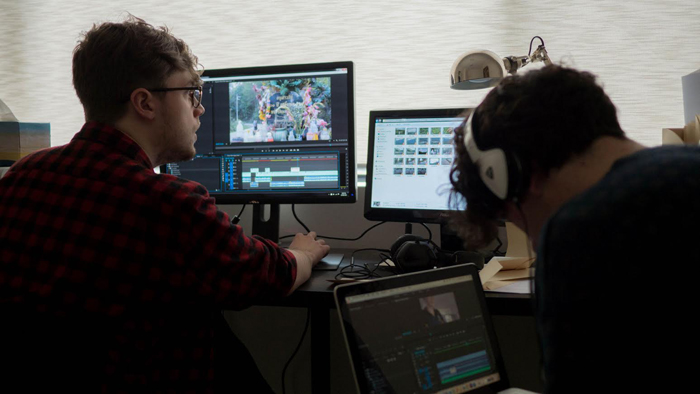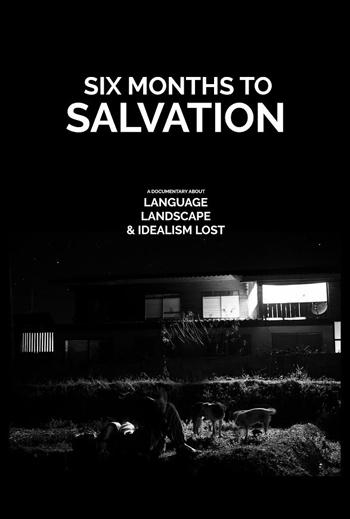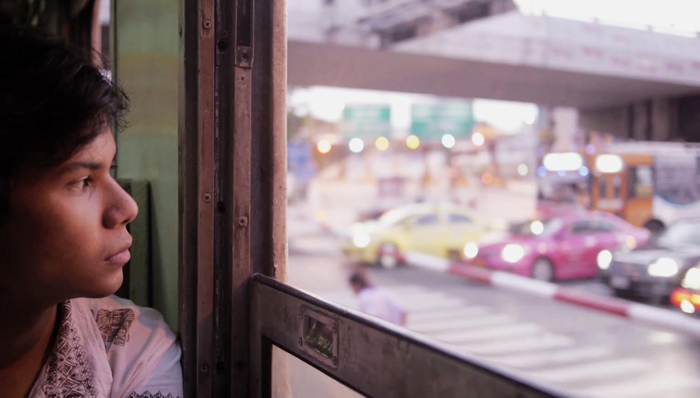
SIX MONTHS TO SALVATION: A documentary that is one of the first feature-length investigations into the burgeoning voluntourism industry, following seven teenagers as they teach English to children in Northern Thailand.
Seven volunteer English teachers from Australia gradually confront the colonial implications of their work in rural Thailand. Over the course of six months, they contend with their inexperience as teachers, the omnipresence of Westernisation, and the ambiguity of their purpose. Directed by one of the volunteers, Six Months to Salvation is a self-reflexive documentary about language, landscape and idealism lost.
Will, Hugo, James, Callum, Declan, Tom and the film’s director Lorenzo are volunteer English teachers from Australia. Their students are children of the Karen hill tribe: a society built on agriculture, with a unique language. Will and Hugo outline their anticipation for the experience, while reflecting on the language barrier separating English-speaking and Karen culture. The group visits various schools to determine where each volunteer will teach, for either six months or a year.
February:
Callum and Lorenzo discuss the implications of living in a globalised world. Lorenzo interviews Oranich, a Karen student, who details how learning English can broaden employment opportunities, and allow wider communication between disparate communities. James begins teaching, and struggles to overcome the language barrier. Hugo discusses the diverse national connections between language and culture.
March:
Lorenzo attends a camp at the remote Nongmontha village, where his students hear stories in their native Karen tongue, and engage with traditional agrarian practices.
Lorenzo has an accident on his motorbike, and while injured, points out the inscriptions on his bedroom door, where volunteers from previous years have written their names. He vows to write his name on the door once he feels he has made a valuable contribution to the community. Hugo has difficulties communicating with his students, but manages to overcome some of them by playing games. The group laugh about the questionable grammar of an official English test for Thai schools.
Lorenzo interviews Fr Vinai Boonlue, a Karen priest and anthropologist, who discusses the marginalisation of the Karen people from Thai society; a function of their rural location and the imperatives of deforestation. He also discusses the liberating prospects of learning foreign languages and the inevitability of cultural expansion.
Requiring medical treatment for an ongoing back injury, Hugo is forced to return to Sydney. Tom starts learning Thai, while Callum, James and Lorenzo discuss, and witness, the spread of Westernisation in the developing world.
April:
The group commemorates Good Friday with the Christian Karen community. While on school holidays, Lorenzo discovers a crowdfunding campaign for a documentary planning to detail the volunteer experiences of American teenagers in Kenya. He questions whether such a mission is merely self-interested, while Callum accuses Lorenzo of hypocrisy.
Will and Callum have difficulties managing their rowdy and disruptive classrooms. They consider their students’ lack of interest in the English language, questioning their ability as teachers and whether their only role is to provide Karen students with temporary Western friends. Lorenzo also struggles to effectively teach his students, who lack pre-existing understanding of English and Thai, and says this makes his teaching time highly limited.
May:
Will decides to return home six months early, conceding his teaching was a voluntourist exercise with little utility. Lorenzo calls one of the film’s producers, Jonathon, and deliberates on his disenchantment with teaching, his inexperience, and his struggle to provide a lasting impact on the community.
Tom and James continue Thai lessons with Oranich, and consequently, James feels more comfortable in the classroom.
June:
Lorenzo interviews Maliwan Kasetsukjai, a Karen community leader, who extols the benefits of teaching English through playing with students and laments Thai society’s bigoted perception of Karen culture.
Hugo returns to Thailand, and is embraced by his students. Behind the camera, Lorenzo films the group skin a pig and attend a wedding in customary Karen attire. They further engage with the agrarian culture, planting rice with Karen farmers.

SMTS Collaborators Jonathon Parker and James Holloway
July:
Will departs Thailand and is replaced by a new volunteer, Alex. On Lorenzo’s final day of teaching, a group of volunteers from Chiang Mai visits his school. They mostly take selfies with the students.
Lorenzo packs his belongings. His name is absent from the bedroom door.
While driving, James tells Lorenzo about his East Timorese uncle, whose own volunteer teachings possibly encouraged someone to abandon their family and culture.
Over a single take of the rice fields at dusk, Lorenzo and Callum discuss the impact of their work. Lorenzo struggles to see its utilitarian value and confesses his failure to teach any lasting English-language skills, while Callum discusses the virtue of building relationships, albeit fleeting ones, with those who are less fortunate.
At night, an airplane leaves Chiang Mai.
BIO:
Lorenzo Benitez is the director and cinematographer of Six Months to Salvation, his feature-length directorial debut, in addition to being one of its producers and editors. A 20-year-old Filipino-Australian, he is interested in self-reflexive cinema as a means of exploring the shifting relationship between the developed and developing worlds. He has recently commenced undergraduate studies at Cornell University. Read Lorenzo’s full Q&A on the film and his life here on FilmCourage.com.
Advertisement

Watch SIX MONTHS TO SALVATION for free here
Six Months to Salvation – This documentary is one of the first feature-length investigations into the burgeoning voluntourism industry, following seven teenagers as they teach English to children in Northern Thailand.
BEING THOMAS by Mario Mattei and Aman Johnson, local filmmakers in Austin, Texas. A story of a troubled kid who burglarizes a house of an elderly man with dementia who welcomes him as his estranged son. Watch it free on Vimeo here!
 CRUSHED Movie Now on iTunes! – Ellia returns to her family vineyard after her father dies in a winery accident. When his death is ruled a murder and her mother becomes the prime suspect, she’s determined to find the truth. As Ellia uncovers secrets about her family and the winery, she becomes the murderer’s next target.
CRUSHED Movie Now on iTunes! – Ellia returns to her family vineyard after her father dies in a winery accident. When his death is ruled a murder and her mother becomes the prime suspect, she’s determined to find the truth. As Ellia uncovers secrets about her family and the winery, she becomes the murderer’s next target.


































